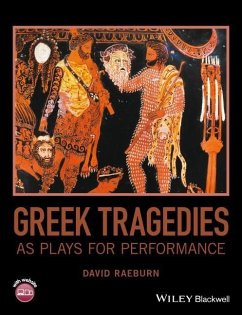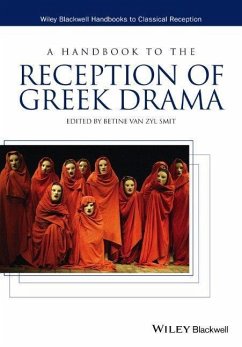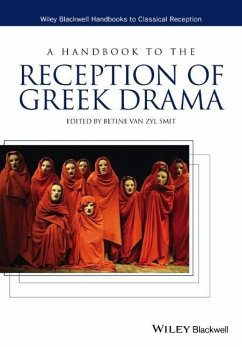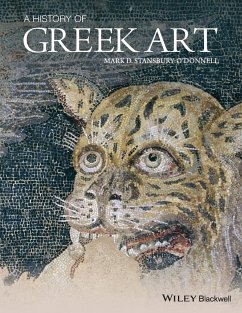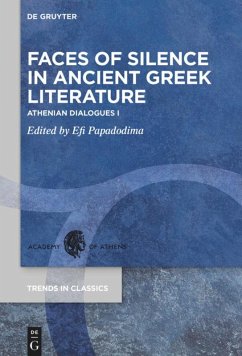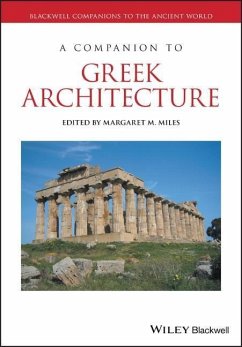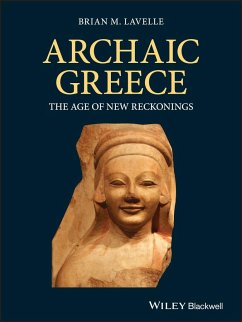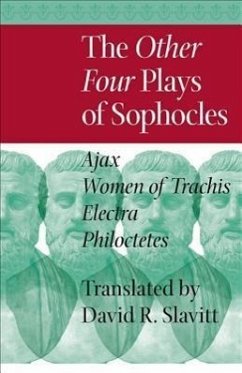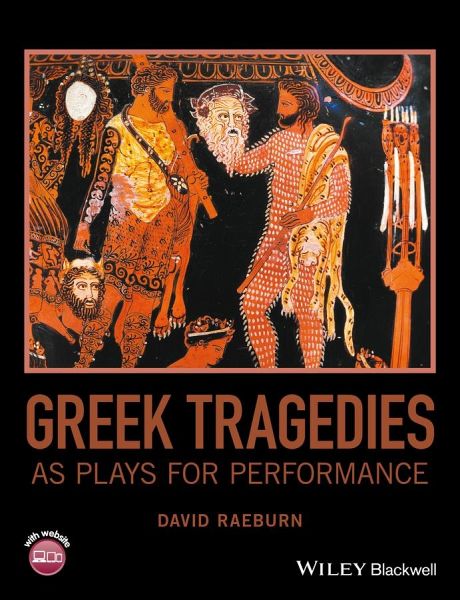
Greek Tragedies as Plays for Performance
Versandkostenfrei!
Versandfertig in über 4 Wochen
101,99 €
inkl. MwSt.
Weitere Ausgaben:

PAYBACK Punkte
51 °P sammeln!
This is a unique introduction to Greek tragedy that explores the plays as dramatic artifacts intended for performance and pays special attention to construction, design, staging, and musical composition._ Written by a scholar who combines his academic understanding of Greek tragedy with his singular theatrical experience of producing these ancient dramas for the modern stage_ Discusses the masters of the genre--Aeschylus, Sophocles, and Euripides--including similarities, differences, the hybrid nature of Greek tragedy, the significance that each poet attaches to familiar myths and his distinct...
This is a unique introduction to Greek tragedy that explores the plays as dramatic artifacts intended for performance and pays special attention to construction, design, staging, and musical composition.
_ Written by a scholar who combines his academic understanding of Greek tragedy with his singular theatrical experience of producing these ancient dramas for the modern stage
_ Discusses the masters of the genre--Aeschylus, Sophocles, and Euripides--including similarities, differences, the hybrid nature of Greek tragedy, the significance that each poet attaches to familiar myths and his distinctive approach as a dramatic artist
_ Examines 10 plays in detail, focusing on performances by the chorus and the 3 actors, the need to captivate audiences attending a major civic and religious festival, and the importance of the lyric sections for emotional effect
_ Provides extended dramatic analysis of important Greek tragedies at an appropriate level for introductory students
_ Contains a companion website, available upon publication at www.wiley.com/go/raeburn, with 136 audio recordings of Greek tragedy that illustrate the beauty of the Greek language and the powerful rhythms of the songs
_ Written by a scholar who combines his academic understanding of Greek tragedy with his singular theatrical experience of producing these ancient dramas for the modern stage
_ Discusses the masters of the genre--Aeschylus, Sophocles, and Euripides--including similarities, differences, the hybrid nature of Greek tragedy, the significance that each poet attaches to familiar myths and his distinctive approach as a dramatic artist
_ Examines 10 plays in detail, focusing on performances by the chorus and the 3 actors, the need to captivate audiences attending a major civic and religious festival, and the importance of the lyric sections for emotional effect
_ Provides extended dramatic analysis of important Greek tragedies at an appropriate level for introductory students
_ Contains a companion website, available upon publication at www.wiley.com/go/raeburn, with 136 audio recordings of Greek tragedy that illustrate the beauty of the Greek language and the powerful rhythms of the songs




